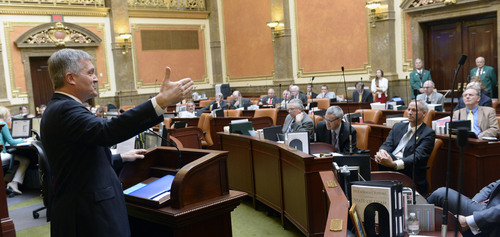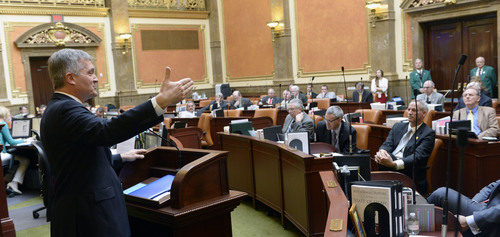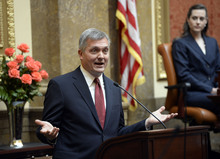This is an archived article that was published on sltrib.com in 2014, and information in the article may be outdated. It is provided only for personal research purposes and may not be reprinted.
Politics have become so polarized and partisan that Democratic U.S. Rep. Jim Matheson told Utah legislators Thursday that the state should closely watch, and maybe copy, something radical.
That is California's recent move to make politicians from both parties run against one another in combined primary elections, with the top two advancing to the general election.
"I do think it draws a greater voter participation," in part because independents can vote in the primary, said the seven-term congressman. In Utah, the Republican primary and caucuses are open only to registered Republicans, although Democrats open their primary to any voter, except registered Republicans.
"Candidates are competing with folks across the spectrum" under California's change, Matheson said, adding that may result in the election of officeholders who are less extreme and less beholden to parties.
Such measures are needed, Matheson said, because "this is the most polarized, partisan Congress in U.S. history."
Matheson, who is not seeking re-election this year but is seen as a likely candidate in 2016 for governor or the U.S. Senate, made his final annual appearance before the Legislature. The Democrat, known for breaking at times with his party on key issues, used it to call for more bipartisanship. He said voters are "fed up with both parties," and more voters than ever consider themselves independents.
He said the recent federal-government shutdown resulted from extreme partisanship. "It was a complete failure to those who tried to make it happen," he told the House. "Nobody won. Everybody lost. I hope everybody learned their lesson. I know Democrats did."
Sen. Jim Dabakis, D-Salt Lake City and chairman of the Utah Democratic Party, joked that he could testify from personal experience heading his party that Matheson "always put the interests of the state ahead of the party."







